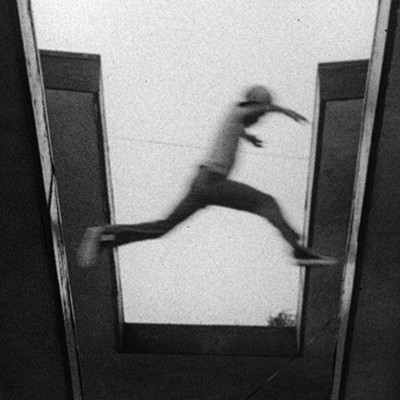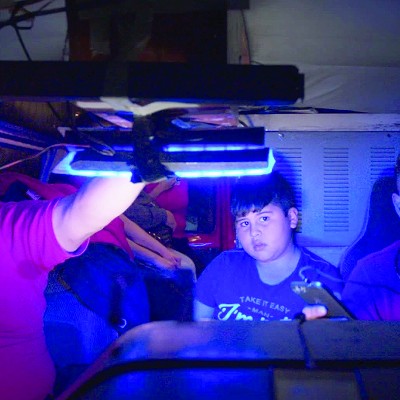Founded in 1994 by Lisa Wise and Jeff Imig, Pan Left helps local activists and artists create politically progressive videos. On a smaller scale, Pan Left is to short documentaries what Mother Jones magazine is to journalism, exposing how we are misled and abused by powerful, impersonal business and government forces.
To celebrate Labor Day, Pan Left is presenting "Feature This," a premiere of three short videos examining workers' struggles in Arizona and Mexico. The screening next week at El Casino Ballroom will follow the end credits with food, drink and funky hip hop music from the group Mankind.
The event includes a showing of Poisoned! The Workers of Brush Wellman, by Heather Lares and Linda Bohlke. The video reminds us that Tucson's south side has long been a dumping ground for factories, trash and contaminants; most notoriously, it's home to the Brush Wellman plant, where shoddy practices brought beryllium sickness first to its workers and then to its neighborhood.
Lares is also behind Shutting Down the Stacks, in which several former miners detail how the 1999 closure of the BHP copper mine in San Manuel transformed and in some cases ruined the lives of its workers. Other than mining, there's not much else to do in San Manuel; one man tells of how he now must commute 130 miles to work in another town. So many other families left that an entire school had to close. Some of the workers effectively closed down, too. Says one, "Some of these people went through the cracks; they don't know how to read and write properly."
Of related interest is The Heart and the Monster: A Journey to Cananea. Producer Daniela Ontiveros returned to her home town to visit her family and discover her Mexican roots; what she found instead was the environmentally ravaged, economically ruined ghost of what had been a prosperous mining town.
"We've always tried to be about giving voice to stories you might not see in mainstream media," says co-founder Imig. "Now a new wave of Pan Left videos has started to come through," more sophisticated work, starting with last year's I Was a Teenage Prostitute. That Juliana Piccillo sex-industry narrative premiered at last November's International Sex Workers Film Festival and has started making the rounds of other festivals.
It's not just that members of the non-profit Pan Left collective now have access to more sophisticated equipment; says Imig, "These people have great stories to tell."
"People are wanting to tell more personal stories--not just get the surface level of the topics, but go deeper, find the voices of the community," says Lares. She's a 1999 graduate of the University of Arizona media arts program; Lares supports herself as a secretary, and spend most of her remaining hours working at Pan Left. The production center is essentially a table of digital editing equipment in the stuffy living room of a house behind the Sixth Avenue offices of the activist group Derechos Humanos.
Ontiveros, who features her family in the Cananea documentary, is still enrolled in the UA media arts program. She started her Pan Left production three years ago. "I had no clue what I was doing," she admits; it was a struggle to edit 30 hours of raw footage "down to one hour that makes sense. I didn't want to overwhelm the audience with a lot of information about the economic issues and the environmental issues and the political issues. Trying to cut it all down to just what would make an impact was very difficult."
Ontiveros and Lares were still putting the finishing touches on their documentaries a few days ago. Eight productions by other Pan Left members are also in the works, and completing them is a slow process. These progressive video makers know that social change comes not in a revolution, but one close-up at a time.











